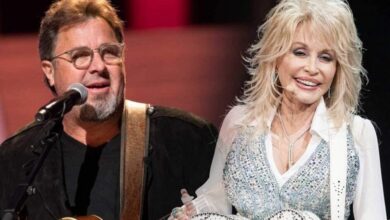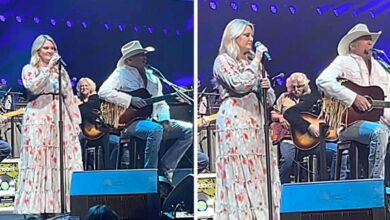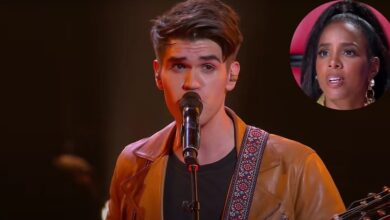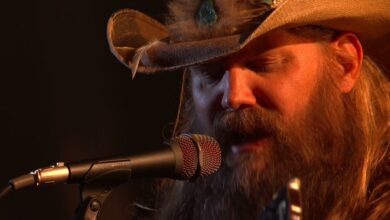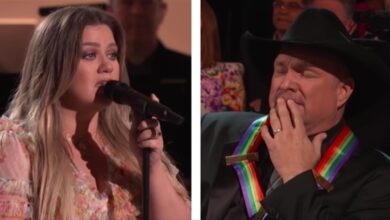Ben Haggard: Continuing His Father’s Legacy in Music and Spirituality
Ben Haggard, the son of the legendary Country Singer Merle Haggard, has been diligently working to keep his father’s legacy alive. Through his YouTube channel, Ben shares intimate musical performances, offering fans a glimpse into his personal interpretation of classic country music. Among these performances, his rendition of the famous hymn “Where No One Stands Alone” stands out. Captured in a simple setting with just his guitar, Ben’s performances are a testament to the essence of pure country music, reflecting the depth and soul of the genre.
“Where No One Stands Alone” traces its origins to the 1950s, penned by hymn writer Thomas Mosie Lister. Lister’s work is deeply thematic, focusing on the emptiness of life without the guiding presence of Jesus. His contributions to gospel music have been widely recognized, earning him a place in the Gospel Music Hall of Fame in 1976 and the Southern Gospel Music Association Hall of Fame in 1997. These accolades highlight the enduring impact of his work and the song’s significance in the realm of spiritual music.
The hymn first gained commercial attention with its recording by the Statesmen Quartet in 1955, marking the beginning of its journey through the world of Southern Gospel. Following the Statesmen Quartet, several other prominent groups such as the Blackwood Bros. Quartet in 1956, The Jordanaires in 1959, and the Cathedral Quartet in 1966, added their voices to this hymn, each bringing their unique style and interpretation to the powerful lyrics. These versions played a significant role in popularizing the hymn, cementing its place in the history of gospel music.
Not only did “Where No One Stands Alone” resonate with Southern Gospel artists, but it also captivated mainstream country singers, leading to its inclusion in various albums. Notable renditions include those by Don Gibson in 1958, Loretta Lynn in 1965, Elvis Presley accompanied by The Jordanaires and The Imperials Quartet in 1967, Ferlin Husky in 1968, Merle Haggard in 1981, and a collaboration between Alison Krauss and The Cox Family in 1994. These interpretations by country music icons not only diversified the song’s reach but also enriched its legacy, blending gospel roots with the soulful storytelling of country music.
YouTube URL(s):

